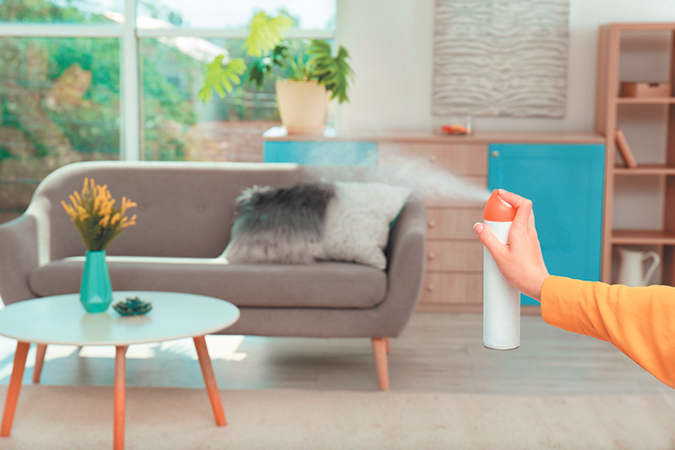Your new diffuser emits the calming scent of lavender, your counters and floors gleam from a cleanser suffused with the uplifting odor of peppermint, and you’re thinking of placing clove potpourri in the bedroom. But did you know that products like these, all made pleasing with the aromas of essential oils that have taken off in consumer use, could be toxic to your dog, and in some cases even lead to life-threatening reactions? Even essential oils in products recommended specifically for dogs can be dangerous, including a tea tree oil recipe on the Internet that promises to rid your pet of fleas and ticks without harsh chemicals. What’s going on?
What’s good for you may not be good for your pet
Essential oils are organic compounds in plants reduced to a liquid form and used to enhance the fragrance of everything from cleaning products to perfumes and air fresheners, add flavorings to foods and beverages, work as disinfectants, and serve as alternative medicines for people. But these same aromatic ingredients that we find quite pleasant or otherwise useful can result in problems when our dogs are exposed to them in high enough concentrations by licking them off the floor or other surfaces, breathing them in, or absorbing them through their skin if the products are applied topically. Symptoms include unsteadiness on the feet, depression, and low body temperature. Diarrhea and vomiting can occur, too, as well as organ shutdown in severe cases. Some people have said their dogs reacted with gagging/choking.
The American Kennel Club lists some of the major essential oils that could prove toxic to your dog in the wrong dose.
-ylang ylang
-cinnamon
-tea tree
-pine
-citrus
-pennyroyal
-peppermint
-sweet birch
Concentration is key
Often, essential oils are watered down and mixed with other oils and liquids, their dilution making them safer and leaving your dog free from harm. The diluted tea tree oil in commercial dog shampoo, for instance, won’t hurt your pet. It’s generally in concentrated form that the oils make dogs sick. For instance, dogs who walk through spilled oil, breathe in or stand directly under the mist of a sprayed product, or have been treated with an “all natural” remedy for itching and repelling fleas and ticks may soon show signs of illness that require immediate veterinary attention.
How to proceed
Should you throw out all your cleaning and calming products made with essential oils? No. But it would be a good idea to discuss these household items with your veterinarian to see if the oils might be present in concentrations that could prove deleterious. And you definitely should not use a “natural” recipe with essential oils on your dog to rid him of fleas or other nuisances without first making sure the topical isn’t putting him at risk of poisoning.
Keep in mind, too, that dogs perceive odors differently than we do, with many millions more olfactory sensors in their noses. Think of sitting at dinner with a friend whose heavy-handed use of a strong perfume overpowers the flavors of the meal and the room in general. That’s what it might be like for a dog in a home doused with essential oils in high concentrations.
Thus, if you want to use, say, a diffuser containing an essential oil, perhaps you’ll want to consider limiting it to a certain room and keeping the door closed. That way, you can enjoy the odor without subjecting your pet to too much of a scent that could disagree with him — or worse.





